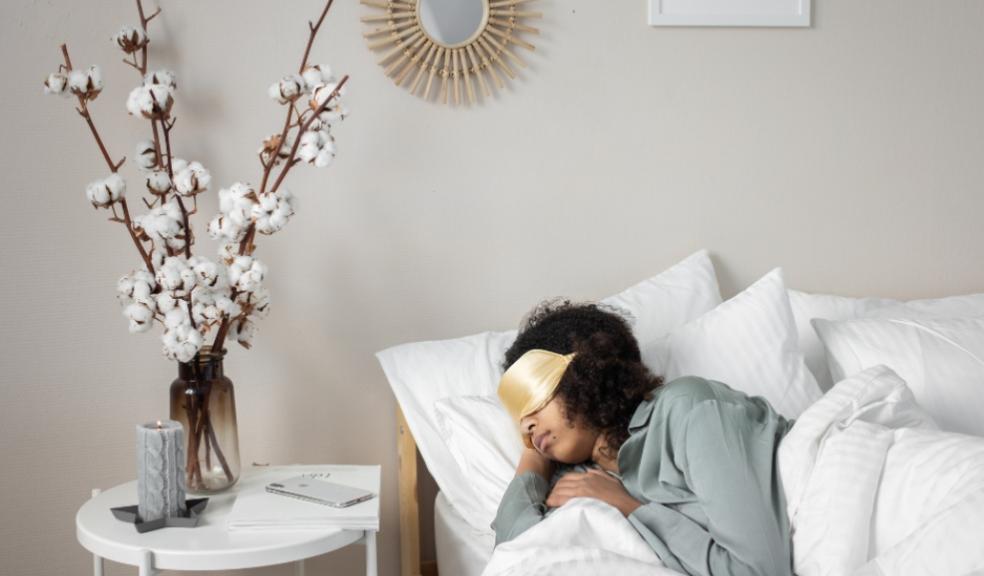
Naps aren't just for your baby: Expert reveals how new parents can take back their sleep
We all crave a nap at one point or another. Sometimes it can be just the thing we need, while at other times it might leave us feeling groggy and sleepier than before we slept. To find out the right times to nap and when you should resist the urge, Mattress Online spoke to the expert in all things sleep, The Sleep Geek (also known as James Wilson).
Key Takeaways:
- Nap before 2pm to avoid disrupting your evening sleep.
- The optimum length to nap is between five and 15 minutes.
- Trial different locations to nap in - napping in bed can work well for some, but for others it makes it difficult to wake.
- Having caffeine before napping gives some people an additional boost of energy on waking, but it doesn't work for everyone.
The benefits of napping
“Naps are a great way to battle the symptoms of sleep deprivation. They can give you a boost of alertness, make you more productive, and can help if you are sleeping against your natural circadian rhythm; for example, if you are a natural night owl who has been forced to get up at 5am for work.”
“They can also be a godsend for shift workers - a nap will fill the gaps in their sleep, helping them meet their sleep needs. This is particularly true when trying to sleep during the day.”
The dark side of napping
“Naps don’t really work well if they impact on 'sleep homeostasis' — one of the internal systems that manage our sleep. Consider sleep homeostasis as a type of ‘sleep pressure’. It’s your body trying to keep you balanced with enough sleep. The longer you go without sleep, the more your sleep equilibrium is disrupted and the sleepier you get. The subsequent feeling of tiredness is your body forcing you to catch up on lost sleep. However, it also works the other way; take a nap close to bed and you suddenly have a surplus of sleep on your clock, making it hard to turn in for the night.”
The main drawbacks of napping include:
- The nap cycle of doom - for some, a nap in the day actually makes it harder to sleep at night. Naps can impact not only deep sleep but also REM sleep, leaving you tired the next day. And guess what the result of that is? You’ll need to nap in order to fully meet your sleep needs.
- Damaged sleep - for others, any nap or extended period of sleep at all can damage their nighttime sleep, and even just an overlong nighttime sleep might cause problems.
How to create the best napping experience
- Choose your location wisely - taking your nap under the covers in bed can make it harder to wake up when the alarm goes off, and a 30-minute nap can easily become a six-hour sleep. Instead opt for somewhere else you find relaxing, using an eye mask and ear plugs if you need dark and absolute quiet!
- Timing is key - napping before 2 o’clock in the afternoon will make it less likely to impact your nighttime sleep. In terms of how long, research shows the optimum time for a nap is five to 15 minutes. However, it is hard to control sleep in this way. Set your alarm for 30 minutes - it might take you 10 to 15 minutes to fall asleep and then you get 10 to 15 minutes of napping. This will be enough to leave you alert and active, but not so much that you are heavy headed and confused.
- Consistency first and foremost - you’ll get more from napping if you do it regularly at the same time, particularly if your lifestyle means that not napping will see you failing to meet your sleep needs, leaving you sleep deprived.
A word on caffeine naps
“Finally, and rather counter-intuitively, it's said that one way to get more from your nap is to have a shot of caffeine beforehand. Caffeine takes roughly 30 minutes to metabolise, and as you wake, you can get the double benefit of nap rejuvenation and caffeine alertness. It’s important to note that everyone’s preferences are individual to them, so a caffeine nap may work for some, while not for others.”













